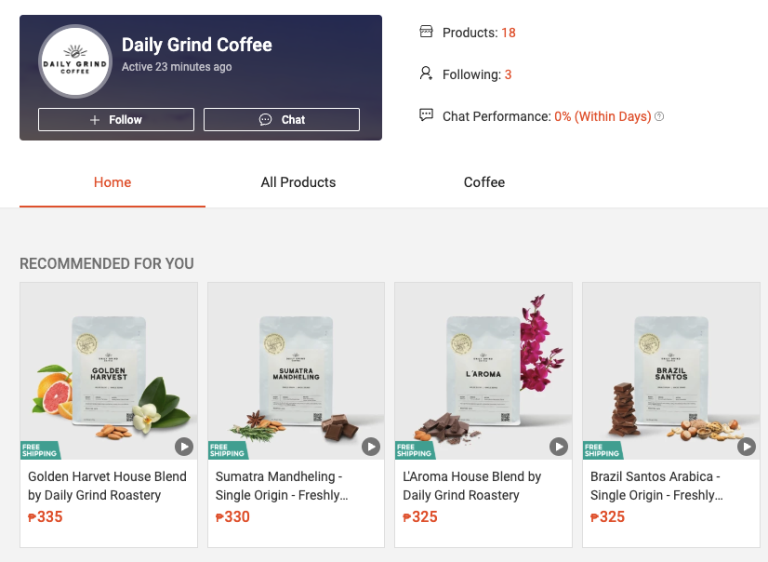Coffee has been at the center of lively debates for decades. While many love it for its rich flavor and energizing properties, numerous myths about its health effects continue to circulate. At Daily Grind Coffee, we’re passionate about quality coffee and equally committed to sharing accurate, science-based insights. In this post, we’ll sift through common misconceptions and shed light on what research tells us about coffee’s impact on your health.
A Love Affair with Coffee and Its Health Perks
Coffee isn’t just a beverage; it’s a ritual that millions around the globe cherish every day. But with great popularity come great myths. Some myths paint coffee as a health hazard, while others exaggerate its benefits. So, where does the truth lie? Let’s dive into the science behind your daily cup.
The Buzz on Coffee and Your Body
Caffeine, the star compound in coffee, is a natural stimulant that has been studied extensively. Caffeine can improve alertness, enhance mood, and boost physical performance when consumed in moderation. However, as with many things in life, moderation is key.
- Energy Boost: Caffeine blocks adenosine, a neurotransmitter that makes you tired. This results in increased alertness and mental clarity.
- Antioxidant-Rich: Coffee is one of the biggest sources of antioxidants in the modern diet. These powerful compounds help combat oxidative stress and may protect your cells from damage.
- Enhanced Physical Performance: Studies have shown that caffeine can improve physical performance by increasing adrenaline levels and releasing fatty acids from fat tissues.
Debunking Common Coffee Myths
Despite its well-documented benefits, several myths continue to cloud our understanding of coffee. Let’s examine some of these common misconceptions and separate fact from fiction.
Myth 1: Coffee Causes Dehydration
One persistent myth is that coffee, as a diuretic, dehydrates you. While caffeine does have a mild diuretic effect, research indicates that the amount of fluid in a cup of coffee more than compensates for this. Coffee contributes to your daily fluid intake.
- Fact: Moderate coffee consumption (about 3-4 cups per day) does not lead to dehydration in regular consumers. Your body adapts to caffeine’s diuretic effects, and the overall hydration balance remains intact.
Myth 2: Coffee Is Bad for Your Heart
Concerns about coffee’s impact on heart health have led some to believe that it raises the risk of heart disease. However, recent studies show that moderate coffee consumption may have a protective effect on the heart.
- Fact: Several large-scale studies have found that moderate coffee drinkers have a lower risk of heart disease, stroke, and other cardiovascular conditions. Coffee’s antioxidants and anti-inflammatory properties may play a role in this benefit.
Myth 3: Coffee Increases Anxiety and Stress
Because caffeine is a stimulant, many worry that coffee consumption can lead to heightened anxiety and stress levels. While it’s true that high doses of caffeine can cause jitters in some individuals, the effects vary widely based on individual sensitivity.
- Fact: For most people, moderate coffee intake is associated with improved mood and cognitive function. It’s important to listen to your body; if you’re particularly sensitive to caffeine, opting for decaf or limiting your intake might be a better choice.
Myth 4: Coffee Stunts Growth
A long-standing myth claims that coffee consumption can stunt growth in young people. This notion, however, is not supported by scientific evidence.
- Fact: No credible research links moderate coffee consumption with stunted growth. Nutritional factors, genetics, and overall diet greatly influence growth and development.
Myth 5: Decaf Is Caffeine-Free
Another common misconception is that decaffeinated coffee is completely free of caffeine. Decaf coffee still contains a small percentage of caffeine—typically around 2-5% of what’s found in regular coffee.
- Fact: While decaf does have significantly less caffeine than regular coffee, it is not entirely caffeine-free. This makes decaf a viable option for those looking to reduce their caffeine intake without sacrificing the flavor and ritual of coffee.
The Science Behind Coffee’s Health Benefits
Antioxidants and Disease Prevention
Coffee contains antioxidants like chlorogenic acids, which can help reduce inflammation and protect against oxidative stress. These antioxidants play a vital role in lowering the risk of chronic diseases.
- Research Insights: Studies suggest that coffee’s antioxidants may reduce the risk of conditions such as type 2 diabetes, Parkinson’s disease, and certain types of cancer.
- Mechanism: Antioxidants neutralize free radicals in the body, reducing cellular damage and contributing to overall health.
Cognitive and Mental Health
Regular coffee consumption has been linked to improved cognitive function and a lower risk of neurodegenerative diseases.
- Improved Memory: Moderate caffeine intake can enhance short-term memory and concentration.
- Reduced Risk of Alzheimer’s and Parkinson’s: Epidemiological studies have found an association between coffee consumption and a decreased risk of developing Alzheimer’s and Parkinson’s diseases.
Physical Performance and Metabolic Boost
Coffee can be a natural performance enhancer for those who enjoy an active lifestyle.
- Enhanced Endurance: Caffeine increases the release of adrenaline, which prepares your body for intense physical activity.
- Metabolic Benefits: Some studies have found that coffee consumption can boost metabolism and aid in fat burning, contributing to weight management.
Balancing Benefits with Caution
While coffee offers numerous health benefits, it’s important to consume it responsibly. Excessive coffee consumption can lead to adverse effects such as insomnia, increased heart rate, and digestive issues.
- Moderation is Key: 3-4 cups per day is moderate and safe for most people. Everyone’s tolerance varies, so listen to your body and adjust accordingly.
- Mindful Consumption: To maximize the health benefits of coffee, consider pairing it with a balanced diet and regular exercise. Avoid overloading on sugar or high-calorie creamers, which can offset the benefits.
What the Experts Say
Health professionals and nutrition experts generally agree that when consumed in moderation, coffee is safe and can be part of a healthy lifestyle. Here are a few insights from recent research:
“Coffee is one of the richest sources of antioxidants in the Western diet, and its consumption is associated with a lower risk of several chronic diseases. The key is moderation and paying attention to individual tolerance levels.”
– Dr. Jane Smith, Nutrition Scientist
“The idea that coffee is harmful has been largely debunked by recent studies. Instead, coffee offers many benefits, from enhancing cognitive function to reducing inflammation.”
– Dr. Michael Lee, Cardiologist
Incorporating Healthy Coffee Habits into Your Daily Routine
At Daily Grind Coffee, we celebrate the art and science of coffee—both in flavor and in health. Here are some tips to enjoy your coffee while maximizing its health benefits:
- Opt for Quality: Choose freshly roasted, high-quality coffee beans. The quality of your coffee directly impacts both flavor and nutritional value.
- Mind the Additives: Keep an eye on what you add to your coffee. Excess sugar and high-calorie creamers can diminish the health benefits.
- Experiment with Alternatives: If you’re sensitive to caffeine, try blending regular and decaf or exploring herbal coffee alternatives.
- Enjoy the Ritual: Coffee is as much about the experience as it is about the beverage. Savor each cup mindfully, whether you’re starting your day or taking a break.
Looking Beyond the Cup: The Broader Impact of Coffee Culture
Beyond individual health benefits, coffee plays a significant role in fostering community and supporting sustainable practices. At Daily Grind Coffee, our commitment extends beyond serving a great cup of coffee—we’re dedicated to ethical sourcing and building relationships with local farmers.
- Sustainable Sourcing: Our beans are carefully sourced from farmers who adhere to sustainable practices. This not only ensures high-quality coffee but also supports local communities.
- Community Engagement: Visiting our coffee shop isn’t just about enjoying a delicious cup—it’s about being part of a vibrant community that values quality, sustainability, and connection.
For more insights into our passion for coffee, explore our company history to learn about our roots and commitment to excellence. If you’re ready to indulge in a perfect pairing of flavors, check out our delicious offerings to see what culinary delights await.
Your Health, Your Coffee, Your Choice
Understanding the science behind coffee can transform your daily ritual. By separating myths from facts, you can enjoy your coffee with confidence, knowing that it offers real health benefits when consumed mindfully. Every cup you savor is not just a burst of energy—it’s a celebration of quality, craftsmanship, and well-researched insight.
Sip, Savor, and Celebrate
At Daily Grind Coffee, we invite you to experience the full spectrum of what coffee has to offer—its rich flavors, vibrant culture, and numerous health benefits. As you enjoy your next cup, remember that moderation, quality, and mindful enjoyment are key to reaping the rewards of this beloved beverage.
Take the Next Step:
Discover more about our journey and values by visiting our brand story. When you’re ready for an extraordinary coffee experience, browse our menu selections and join us at the shop for a taste that supports both your health and our local community.
Coffee is more than just a drink—it’s a lifestyle steeped in tradition, innovation, and science. By debunking myths and embracing the facts, you can enjoy every cup with the confidence that comes from understanding its benefits. Whether you’re a lifelong enthusiast or just beginning your coffee journey, let every sip remind you of the thoughtful care behind each cup.
Thank you for joining us on this journey to separate myth from fact. Here’s to enjoying coffee the right way—with a focus on health, quality, and mindful living.
Happy sipping!





















